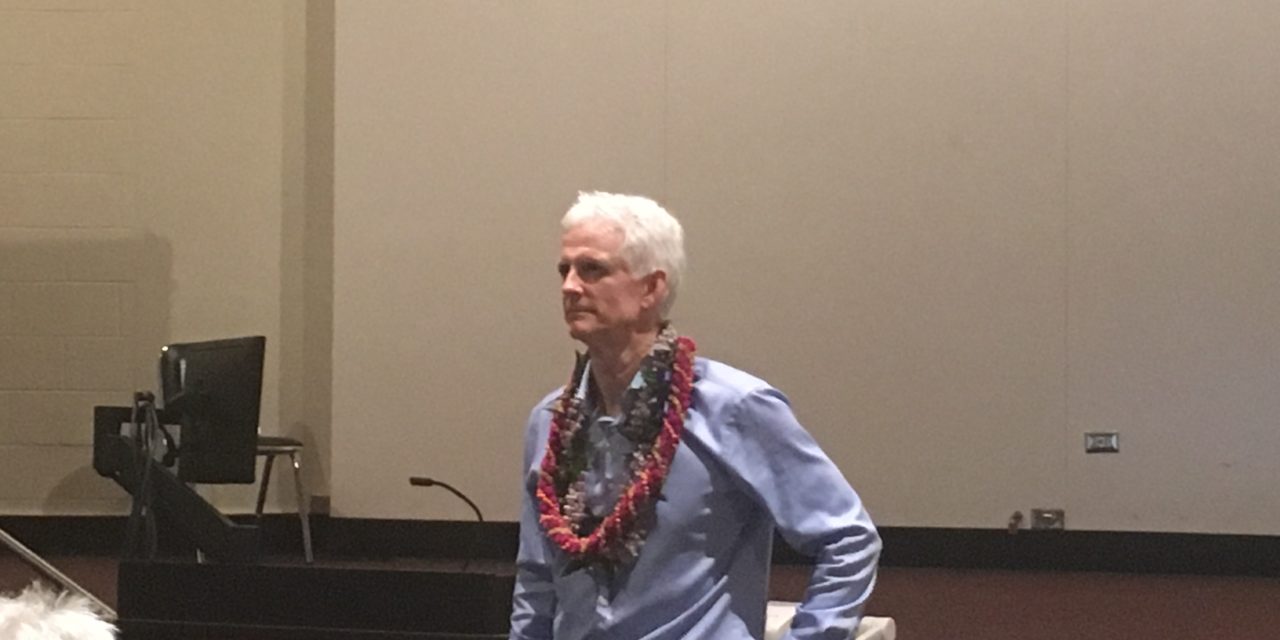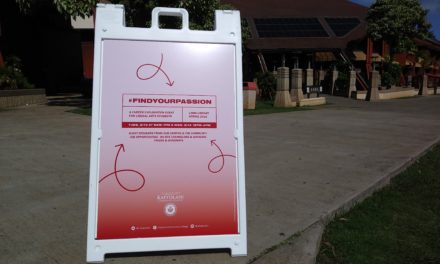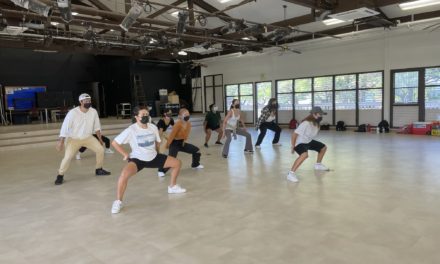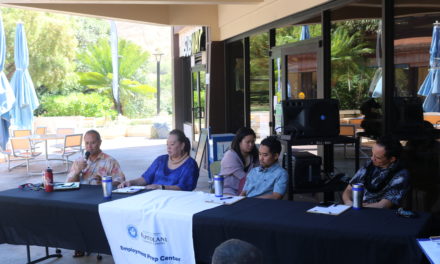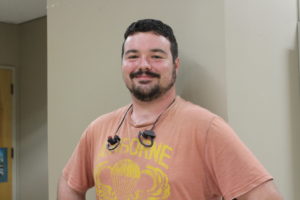By Katlin Cilliers | Staff Writer
During Ellis Henican’s first interaction with Donald Trump in the ’90s, the then businessman held up two framed photos – one of Ivana Trump and one of Marla Maples, who would soon become his wife.
“So … which one is hotter?” Henican recalled Trump asking.
To Henican – who was then a news reporter for Newsday, now a political analyst and news pundit for cable news channels such as Fox News and CNN – the man behind the question asked 30 years ago hasn’t changed in essence. What did change is that he moved from the 26th floor of the Trump Tower in New York City, to the Oval Office in Washington, D.C.
Trump also moved from deliberating about female beauty with strangers to engaging in war against news media that reports on him. Such conflict was the key point in Henican’s lecture Wednesday at the University of Hawaiʻi at Mānoa’s architecture building.
“When you get your head around [the Trump administration], when you’re expected to cover everything, you start to notice the themes,” Henican said. “And the themes become especially powerful when they involve things that affect each and every one of us individually.”
About a hundred people attended the talk, titled “Media in the Age of Trump,” that discussed the president deeming the news media “the enemy of the people” and how that stance challenges journalism itself.
Henican began by speaking about Trump’s personality and how it appeals to his supporters, entices endless media coverage, and what can be done at a press and individual level to make consuming news less of a bleak experience.
In a sit-down interview a few hours before his lecture, Henican also spoke about the demographics and general profile of Trump supporters: factory and field workers from “the middle parts of the country” that may feel alienated and, due to their own hardships, found an echo in what Trump had to offer to the table a little more than two years ago as a candidate.
“[These people] feel very alienated, from politics, and government, and from their own futures, and opportunities, you know?” Henican said. “[People] who feel like … their dreams are getting harder for them to realize. … And their opportunities, their incomes, their futures, have kind of gotten a little dim. And so I think they were very open to a message like the one that came from Trump.”
Despite the current scenario, Henican says there’s hope things will change for the better. To him, America’s history is built upon righting its wrongs and “self-correcting” whenever it’s headed to less-than-ideal circumstances. This, however, takes time and lots of moving back and forth.
” … Unfortunately it’s not a straight slope up, you know? We dip, we come up, we take a step, we take two steps back. … But in the long sweep, I am pretty cheerful. I think we’ll come to our senses.”
Henican offered his thoughts on a post-Trump America, one that will have moved away from divisiveness and hostility. To him, Hawai‘i is in the vanguard of this trend.
“It’s only going to get more so [diverse] and to me [Hawaiʻi] is one of the places, because of its unique history,” he said. … “Hawaiʻi, seems to me, can be a real advance laboratory for that.”
To him, in post-Trump America the lesson that the most people will take is that “we don’t want to be [divisive] like that,” Henican said. “We’re better than that. That in the long run, we do better by having allies around the world. We do better by different groups in America finding ways to cooperate and be open to each other. That, you know, progress comes really not from hostility, but from finding smart ways to cooperate.”
At an individual level, Henican urged people to be willing to hear the other side of arguments. He suggested taking five minutes a day to “hear things we’re not usually inclined to hear,” he said.
To Eriza Bareng, a program assistant of the Better Tomorrow Speaker Series that brought Henican to UH, the talk was “compelling.”
“[People] had a lot of questions in terms of, like moving forward and how [the] journalism field would have to deal with this kind of leadership,” Bareng said. “So I thought that was really interesting, and I think that, like, for the laymen, it’s also good to understand how to deal with this kind of politics.”

